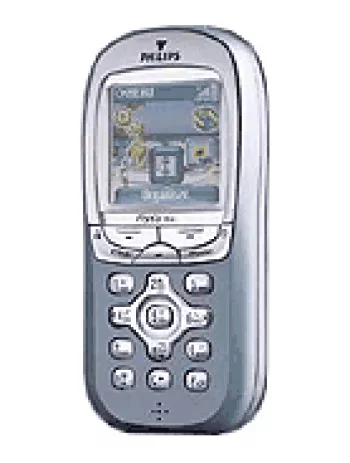
Overview of the Philips S220
The Philips S220, released in October 2006, is a classic feature phone designed for simplicity and basic mobile communication. As a discontinued model, it was noted for its straightforward design, ease of use, and long-lasting battery life, catering to users who preferred essential communication functions without the complexities of modern smartphones.
Network and Connectivity
The Philips S220 operates on GSM technology, supporting GSM 900 and 1800 frequency bands. Notably, it does not support GPRS or EDGE, indicating its focus on fundamental voice communication capabilities rather than internet-based applications. The absence of internet connectivity simplifies its use for voice calls and basic messaging services.
Release and Availability
Announced in October 2006, the Philips S220 has since been discontinued. It was initially introduced to the market as an affordable option for individuals seeking reliable call and text functionalities in a mobile phone, devoid of the complexities of advanced features found in newer models.
Design and Build
The Philips S220 boasts a compact and lightweight design, with dimensions measuring 101 x 43.5 x 18.5 mm and a weight of 80 grams. This makes it convenient for users looking for a portable and easy-to-carry device. It adopts a classic candybar form factor, featuring simple navigation keys and a mini-SIM card slot.
Display Characteristics
Equipped with a CSTN display that supports 65K colors, the Philips S220’s screen has a resolution of 128 x 128 pixels. Although modest by today’s standards, this screen capability was adequate for displaying contacts and basic image elements within the phone's user interface. The display size provides enough room for essential functions and easy access to the menu.
Memory and Storage
In terms of memory, the Philips S220 does not support external card slots, limiting its storage capabilities to the onboard phonebook and call records features. Users can store a certain number of contact entries in the phonebook and track their call history, including 30 entries each for received, dialed, and missed calls.
Sound and Alerts
The sound features of the Philips S220 include polyphonic ringtones with 16 options available. However, it does not have a loudspeaker or a 3.5mm audio jack, which limits its multimedia sound capabilities. The primary alert types are vibration and polyphonic ringtones, which serve well for its intended basic communication purposes.
Communication Features
Although lacking advanced communication technologies like Bluetooth and WLAN, the S220 includes an FM radio, which provides entertainment for users. Its lack of USB connectivity implies that data transfer to and from the phone is not a primary function of this device.
Additional Features
The Philips S220 is geared towards essential communication, featuring SMS and EMS messaging. It does not include a web browser or Java applications, reinforcing its role as a phone for straightforward communication. For entertainment, it comes pre-loaded with three basic games.
Battery Life
One of the strong points of the Philips S220 is its battery life. It comes with a removable Li-Ion 1000 mAh battery that provides up to 330 hours of standby time and up to 2 hours and 30 minutes of talk time. This extended battery life suits users who require a dependable phone for longer periods without frequent charging.
Colors and Variants
The S220 was available in two color options: black and silver. These classic colors offered a professional and timeless aesthetic, appealing to a broad base of traditional mobile phone users seeking a simple yet attractive device.
Conclusion
The Philips S220 represents a time when mobile phones were primarily used for calls and texts. While lacking in advanced features, it delivers on basic functionality, making it a viable option for users who prioritize simplicity and reliability. Its robust battery life and compact design underscore its appeal as a practical communication device in the era preceding smartphones.
Key Features of Philips S220
- Lightweight design at 80 g (2.82 oz)
- CSTN display with 65K colors
- Compact dimensions of 101 x 43.5 x 18.5 mm
- FM radio support for entertainment
- Polyphonic ringtones with vibration alert
- Removable Li-Ion 1000 mAh battery
- Stand-by time up to 330 hours
- Available in Black and Silver colors
Disadvantages of Philips S220
- Limited Network: Only supports GSM 900/1800 with no GPRS or EDGE.
- Discontinued Product: The device was announced in 2006 and is now discontinued.
- Low Display Quality: CSTN display with only 65K colors and a low resolution of 128 x 128 pixels.
- No External Memory Support: No card slot for expanding storage.
- No Camera: The device lacks any camera functionality.
- Minimal Sound Features: No loudspeaker and no 3.5mm headphone jack.
- No Connectivity Options: Lacks WLAN, Bluetooth, Positioning, and USB ports.
- Basic Features: Limited to SMS and EMS for messaging and no internet browser or Java support.
- Limited Talk Time: Battery supports only up to 2 hours and 30 minutes of talk time.

View Also
More Phones
All Rights Reserved +14266 Phones © Mobilawy 2025

























